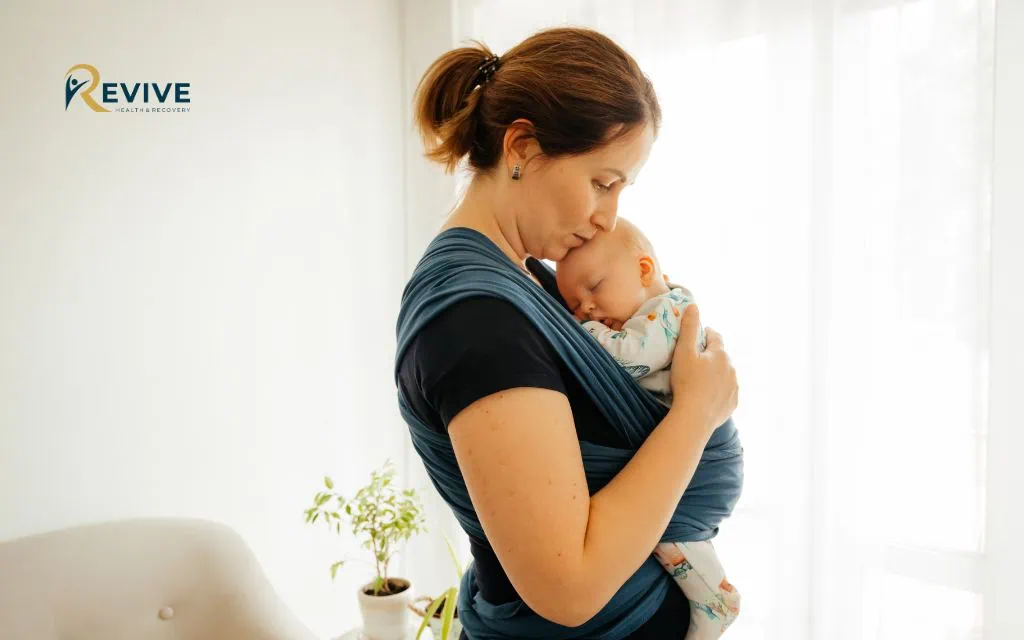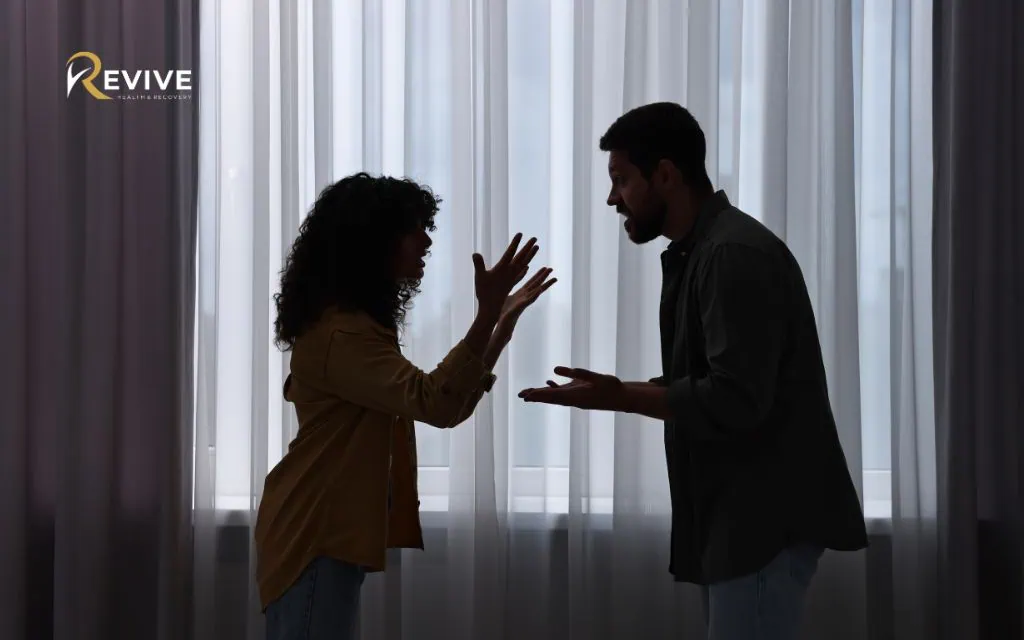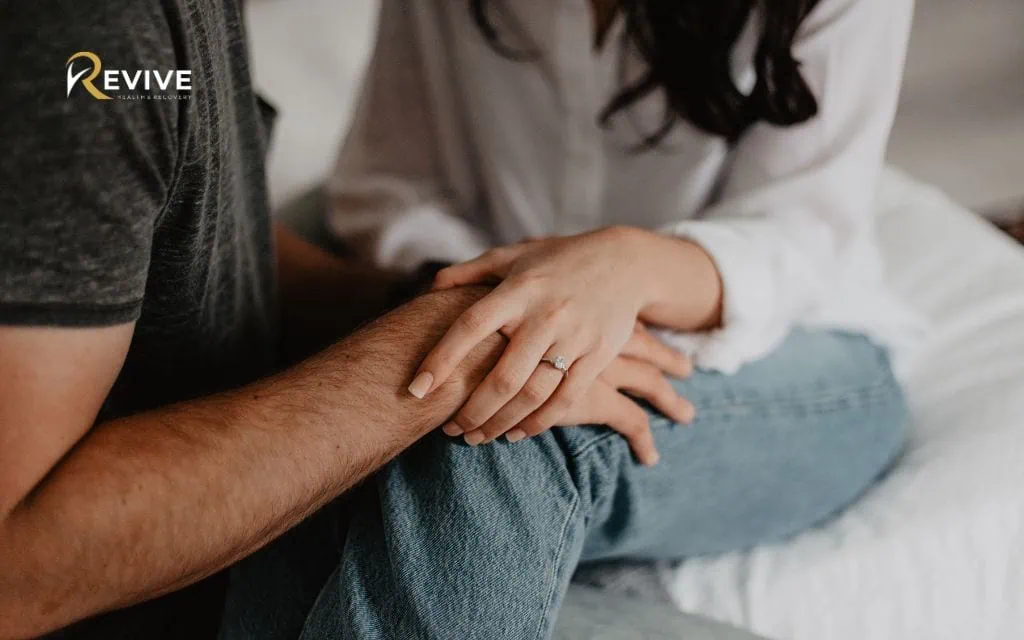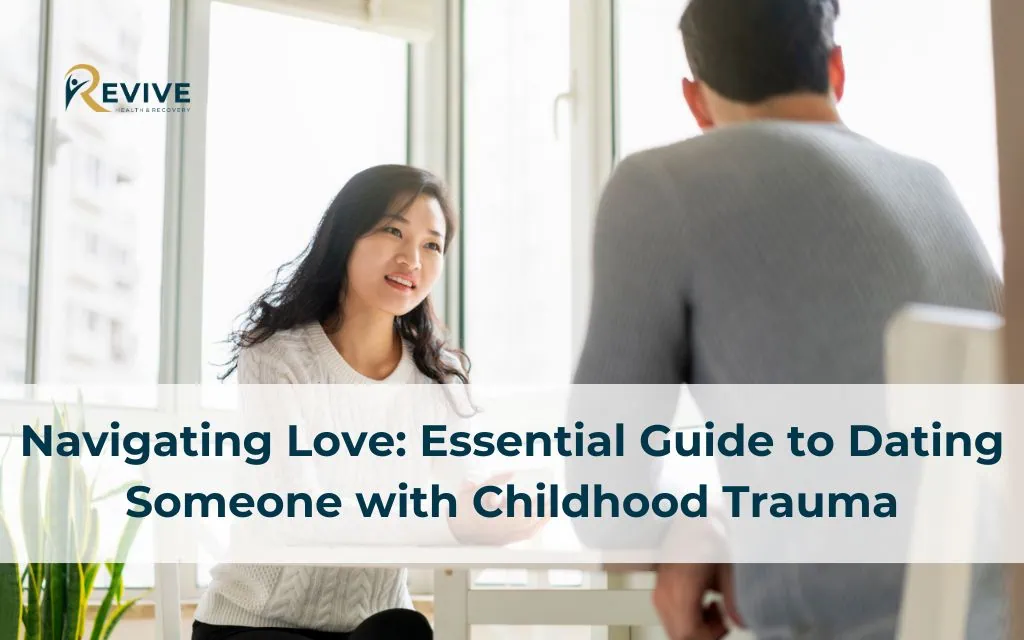Dating someone with childhood trauma can be both rewarding and challenging. Understanding their emotional needs and triggers is key to building a supportive and loving relationship. Trauma Recovery Insights can help you better comprehend the impact of past wounds on your partner’s behavior and emotional responses.
This guide will explore how childhood trauma can affect relationships and offer practical advice on how to approach love with empathy and patience. Whether you’re navigating trust issues, emotional distance, or sensitivity to certain topics, learning about trauma recovery can strengthen your connection and provide the foundation for a healthy, lasting relationship.
Understanding Childhood Trauma and Its Impact on Relationships
Dating someone with childhood trauma presents unique challenges and opportunities for growth. When we understand how early adverse experiences shape adult relationships, as explained by the American Psychological Association, we can approach our partners with greater compassion and develop deeper connections built on mutual trust and understanding.
Learning effective ways to support your partner can make all the difference in fostering a healthy relationship.
What Defines Childhood Trauma: The Colorado Perspective
Childhood trauma encompasses adverse experiences before age 18 that cause lasting psychological effects. These may include physical or emotional abuse, neglect, household dysfunction, or witnessing violence, as outlined in the CDC’s Adverse Childhood Experiences (ACEs) study. In Colorado, mental health professionals recognize that trauma manifests differently based on individual experiences and environmental factors.
Interestingly, Denver’s higher altitude may actually impact trauma responses due to physiological effects on anxiety and stress hormones. Research suggests that living at elevation can influence neurochemistry, potentially intensifying certain trauma symptoms for some individuals in the Denver metro area.
How Trauma Manifests in Adult Dating Behaviors
Approximately 70% of adults in relationships show signs of childhood trauma affecting their connections. Understanding the impact of childhood trauma on romantic relationships can help partners navigate these challenges more effectively. These manifestations often appear as:
- Difficulty trusting partners or excessive need for reassurance
- Fear of abandonment or emotional intimacy
- Inconsistent communication patterns
- Hypervigilance about potential relationship threats
- Emotional withdrawal during conflicts
- Unexpected emotional reactions to seemingly minor triggers
“Trauma doesn’t just live in our memories—it lives in our bodies and shapes how we connect with others,” explains Dr. Rebecca Johnson, a trauma-informed therapist in Denver. “Understanding these patterns is the first step toward healthier relationships.”
Common Misconceptions About Dating Someone with Trauma
Several myths surround dating someone with childhood trauma that can hinder relationship development:
Myth 1: “They just need to get over their past.” Reality: Trauma creates neurobiological changes that require proper processing, not simply “moving on.”
Myth 2: “I can fix them with enough love.” Reality: Healing comes from within, supported by professional help and healthy relationships—not from being “rescued.”
Myth 3: “Their trauma means our relationship will always be difficult.” Reality: With appropriate support and commitment to growth, many trauma survivors develop especially deep, meaningful relationships.
Myth 4: “If I avoid triggering topics, everything will be fine.” Reality: Avoidance often reinforces trauma patterns; healthy relationships require compassionate communication about difficult topics.
Recognizing Signs of Childhood Trauma in Your Denver Dating Life
When dating someone with childhood trauma in Denver’s active social scene, recognizing the signs early, such as those outlined by the National Child Traumatic Stress Network, can help you navigate the relationship with greater understanding and patience.
Attachment Patterns That Signal Past Trauma

Attachment styles strongly indicate how childhood experiences shape adult relationships:
Anxious attachment: Characterized by fear of abandonment, need for constant reassurance, and relationship anxiety.
Avoidant attachment: Manifests as emotional distance, discomfort with intimacy, and self-reliance to a fault.
Disorganized attachment: Shows as unpredictable responses to intimacy—sometimes clingy, sometimes distant—creating confusing relationship dynamics.
Denver’s growing population and urban lifestyle often lead to increased isolation, making trauma-informed dating particularly challenging. The transient nature of some Denver communities can inadvertently trigger abandonment fears in trauma survivors.
Emotional Triggers and How They Appear in Relationships
Emotional triggers—situations that activate trauma responses—can be bewildering for both partners when they emerge during dating:
- Seemingly minor conflicts triggering major emotional responses
- Specific words, tones, or gestures causing sudden mood shifts
- Physical intimacy initiating unexpected emotional reactions
- Holidays or special occasions creating anxiety or withdrawal
- Certain locations or environments causing visible discomfort
Understanding these triggers requires patience and observation. Many Colorado couples find that openly discussing triggers in neutral settings helps create greater mutual understanding.
Distinguishing Between Trauma Responses and Personality Traits
It’s important to recognize the difference between trauma responses and someone’s core personality. Trauma responses are:
- Often situational rather than consistent
- Typically disproportionate to the current circumstance
- Usually connected to specific triggers
- May be accompanied by physical reactions like rapid heartbeat
- Often followed by feelings of shame or confusion
“Many people mistakenly attribute trauma responses to personality flaws,” notes Sarah Miller, LCSW, from the Center for Trauma & Resilience in Denver. “Understanding that these are protective mechanisms developed in childhood can completely change how we approach relationship challenges.”
Building a Secure Foundation: Communication Strategies That Work
Effective communication forms the cornerstone of any healthy relationship, especially when dating someone with childhood trauma.
Creating Emotional Safety in Your Relationship
Emotional safety means creating an environment where both partners feel secure expressing vulnerability without fear of judgment or rejection:
- Practice active listening without immediately offering solutions
- Validate your partner’s feelings even when you don’t fully understand
- Maintain consistency in your responses to build trust
- Use “I” statements rather than accusatory language
- Create predictable patterns and rituals that foster security
Colorado’s emphasis on outdoor activities provides unique therapeutic opportunities for trauma recovery in relationships. Many Denver couples find that conversations while hiking or enjoying nature at parks like Red Rocks or Cherry Creek State Park create a relaxed setting for difficult discussions.
Setting Healthy Boundaries While Showing Support
Setting boundaries when dating someone with trauma requires balancing compassion with self-protection:
- Clearly communicate your needs and limits
- Recognize that healthy boundaries benefit both partners
- Understand that boundaries may trigger abandonment fears
- Be consistent in upholding your boundaries
- Acknowledge that boundary-setting is an act of respect, not rejection
“Boundaries aren’t walls—they’re bridges that allow us to meet each other safely,” explains Carlos Rodriguez, a trauma-informed dating coach in Denver. “They protect the relationship from the damage that can occur when we don’t honor our own or our partner’s limits.”
Navigating Conflict When Trauma is Triggered

Conflict is inevitable in any relationship, but when dating someone with childhood trauma, these moments require extra care:
- Recognize signs that your partner is entering a triggered state
- Agree on a time-out signal either partner can use when emotions escalate
- Allow space for processing without abandoning the conversation
- Return to difficult topics when both partners are regulated
- Focus on resolution rather than “winning” disagreements
Denver relationship counseling specialists often recommend incorporating specific Colorado-oriented grounding techniques during conflicts, such as mountain visualization or altitude-adjusted breathing exercises that work effectively at Denver’s elevation.
Supporting Your Partner Without Becoming Their Therapist
When dating someone with childhood trauma, finding the balance between support and appropriate boundaries is essential for both partners’ wellbeing.
The Line Between Partnership and Therapy
While emotional support is vital in any relationship, partners should not attempt to replace professional treatment. Encouraging steps toward healing childhood trauma can be a powerful way to support your partner’s journey:
- Encourage growth without trying to “fix” trauma responses
- Listen compassionately without analyzing or diagnosing
- Be present during difficult moments without taking responsibility for their healing
- Understand that certain trauma work needs professional guidance
- Recognize when issues exceed your capacity to support
“Partners can be incredible allies in the healing journey, but they shouldn’t be therapists,” says Dr. James Wilson of Denver Holistic Therapy. “The most supportive thing you can do is encourage professional help while maintaining a loving presence.”
Self-Care Practices for Partners of Trauma Survivors
Dating someone with trauma history requires intentional self-care:
- Maintain your own support network and interests
- Establish regular self-care routines
- Process your emotions with friends or your own therapist
- Set clear boundaries around what support you can realistically offer
- Practice mindfulness to manage your own stress responses
Colorado’s outdoor recreation culture offers excellent opportunities for self-care, from mountain biking and skiing to yoga in the park. These activities not only reduce stress but also model healthy coping mechanisms.
When and How to Encourage Professional Help
Knowing when to suggest professional support requires sensitivity:
- Notice patterns that consistently disrupt your partner’s wellbeing
- Frame therapy as a sign of strength, not weakness
- Share resources without pressure or ultimatums
- Offer to help research trauma-informed therapists if wanted
- Consider couples therapy alongside individual work
Denver offers numerous specialized trauma recovery approaches. EMDR therapy for relationship trauma in Denver has shown particularly promising results for addressing childhood trauma that affects adult relationships.
Denver’s Resources for Trauma-Informed Relationship Support
The Denver metropolitan area has over 20 specialized trauma recovery centers offering relationship support, making it an excellent location for couples affected by childhood trauma.
Top Trauma Therapists and Counseling Centers in Denver
Denver boasts some of Colorado’s most experienced trauma specialists:
- The Center for Trauma & Resilience: Offers free services specifically for relationship trauma survivors
- Denver Holistic Therapy: Specializes in somatic approaches that address body-stored trauma
- Colorado Trauma Clinic: Provides comprehensive trauma assessment and treatment
- Mindful Therapy Denver: Offers trauma-informed couples counseling
Many Denver therapists combine traditional approaches with Colorado’s natural environment through outdoor therapy sessions, which can be particularly effective for processing relationship traumas.
Colorado Support Groups for Couples Affected by Trauma

Support groups provide community understanding that individual therapy cannot:
- Healing Together Denver: Weekly meetings for couples navigating trauma effects
- Partners in Healing: Support specifically for partners of trauma survivors
- Colorado Trauma Recovery Network: Offers regular workshops on relationship resilience
- Denver Attachment Network: Focuses on healing attachment wounds in relationships
These groups create communities of understanding where couples can share challenges and solutions with others on similar journeys.
Trauma-Informed Date Ideas Around Denver
Creating new positive experiences together is vital when dating someone with childhood trauma:
- Low-pressure nature walks at Denver Botanic Gardens
- Quiet weekday visits to Denver Art Museum
- Private sunset picnics at Sloan’s Lake
- Cooking classes at Cook Street School of Culinary Arts
- Mindful movement classes at local yoga studios
These activities offer connection opportunities without overwhelming sensory experiences that might trigger trauma responses.
Healing Together: Building Resilience as a Couple
With commitment and appropriate support, dating someone with childhood trauma can lead to exceptionally strong, resilient relationships built on deep understanding and intentional growth.
Joint Therapeutic Activities Available in Colorado
Colorado offers unique opportunities for couples healing from trauma:
- Equine-assisted therapy in nearby mountain communities
- Wilderness therapy experiences in Rocky Mountain National Park
- Couples mindfulness retreats in Boulder and Estes Park
- Art therapy workshops at Denver’s Art Underground
- Trauma-sensitive yoga classes designed for partners
Colorado’s mental health initiatives include specific funding for trauma-informed relationship counseling, making these specialized services more accessible than in many other states.
Celebrating Progress and Acknowledging Growth
Recognizing improvements, however small, reinforces positive change:
- Acknowledge when trigger responses become less intense
- Celebrate moments of vulnerability and connection
- Notice improvements in communication during difficult conversations
- Appreciate efforts to try new coping strategies
- Recognize your growth as a couple and as individuals
“Healing isn’t linear,” reminds Dr. Maria Sanchez of Denver’s Trauma Recovery Center. “Couples who celebrate progress rather than expecting perfection tend to build more resilient relationships over time.”
Learning about PTSD and its effects on relationships, as provided by the National Institute of Mental Health, can further strengthen your bond as a couple.
Creating New Patterns to Replace Trauma Responses
Breaking old cycles requires intentionally establishing healthier alternatives:
- Create new traditions that build security and trust
- Develop personalized signals to communicate needs during difficult moments
- Establish routines that reinforce emotional safety
- Practice new responses to common triggers
- Build shared meaningful experiences that strengthen your bond
Many Colorado therapists recommend the “mountain mindset” approach—viewing relationship challenges like climbing a 14er: requiring preparation, patience, and perseverance, with spectacular views worth the effort.
FAQs about Dating someone with childhood trauma
Is it worth dating someone with childhood trauma in Denver?
Absolutely. Dating someone with childhood trauma can lead to profound, meaningful relationships characterized by exceptional depth and authenticity. Denver’s robust trauma-informed therapy community provides excellent support for couples navigating these challenges, with over 20 specialized centers offering relationship-focused trauma treatment. For personalized guidance on your specific situation, contact Revive Health Recovery, Denver’s premier trauma recovery center.
How do I know if my partner’s behaviors are related to childhood trauma?
Common indicators include inconsistent attachment patterns, disproportionate reactions to seemingly minor triggers, fear of abandonment or intimacy, trust issues, and difficulty regulating emotions during conflicts. However, only qualified professionals should make assessments about trauma. Revive Health Recovery offers comprehensive trauma assessments with experienced clinicians who can help identify how past experiences affect current relationships.
Can two people with childhood trauma have a healthy relationship?
Yes, two people with childhood trauma can absolutely develop healthy, fulfilling relationships. When both partners are committed to their healing journeys and communication, these relationships often develop exceptional emotional intelligence and resilience. Colorado’s unique therapeutic landscape, including specialized couples programs at Revive Health Recovery, provides ideal support for such relationships.
What local therapy approaches are most effective for couples dealing with trauma in Denver?
Denver therapists offer several highly effective approaches, including EMDR, Brainspotting therapy, Somatic Experiencing, and altitude-adjusted mindfulness practices specifically designed for Denver’s elevation. Revive Health Recovery combines these evidence-based approaches with innovative therapy models to create personalized treatment plans for couples affected by trauma.
How do Colorado’s outdoor activities help in healing relationship trauma?
Colorado’s natural environment offers unique therapeutic advantages through:
– Nature-based grounding techniques that improve trauma regulation
– Mountain activities that build trust between partners
– Outdoor mindfulness practices that enhance present-moment awareness
– Shared adventures that create new, positive neural pathways
– Physical activities that release stored trauma from the body
Revive Health Recovery incorporates Colorado’s outdoor therapeutic potential into many of their trauma recovery programs for couples.
5 Reasons to Choose Revive Health Recovery for Trauma-Informed Relationship Support
- Specialized Trauma Expertise: Our clinicians have advanced training in childhood trauma and how it specifically impacts adult relationships.
- Comprehensive Approach: We offer individual therapy, couples counseling, and group support under one roof for seamless care.
- Innovative Treatment Methods: Our center combines traditional therapy with cutting-edge approaches like EMDR, somatic experiencing, and Colorado’s unique outdoor therapeutic opportunities.
- Personalized Care Plans: We recognize that trauma manifests differently for everyone and create individualized treatment strategies rather than one-size-fits-all approaches.
- Supportive Community: Beyond individual treatment, we foster a community of healing through specialized support groups, workshops, and educational resources for both trauma survivors and their partners.
Your Next Step Toward Healing
Dating someone with childhood trauma presents unique challenges, but with proper support and understanding, these relationships can flourish into exceptionally deep, meaningful connections. The journey requires patience, compassion, and professional guidance—all of which are available at Revive Health Recovery.
If you or your partner are navigating the effects of childhood trauma on your relationship, you don’t have to face these challenges alone. Our trauma-informed specialists are ready to support your journey toward healing, greater connection, and relationship resilience.
Take the first step toward a healthier relationship today by contacting Revive Health Recovery at (303) 268-4655 or emailing contact@revivehealthrecovery.com. Our compassionate team is available 24/7 to answer your questions and help you begin your healing journey together.
Revive Health Recovery Center 1427 S Federal Blvd, Denver, CO 80219 Call Us – Available 24/7: (303) 268-4655 Email: contact@revivehealthrecovery.com



